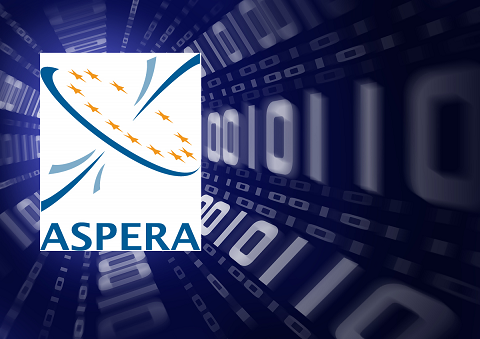Astroparticle physics is entering a new era of discovery. It has many aims, including: -- Using cosmic messengers (high energy photons, cosmic rays, neutrinos and gravitational waves) to understand the formation of cosmological structure and the behavior and evolution of stars, galaxies and black holes. -- Using large sky surveys and underground dark matter search experiments to understanding the material content of the Universe, and in particular the nature of dark matter and energy. -- Using rare decays in underground laboratories to study the properties of the neutrino and the proton lifetime, to better understand the form of matter and interactions at the shortest scales. In a few years, Astroparticle Physics has grown from a field of a few charismatic pioneers, transgressing interdisciplinary frontiers to a global science activity with large infrastructures and collaborations each involving hundreds of researchers. The large-scale projects and activities proposed in the ASPERA Roadmap (www.aspera-eu.org) face challenging problems of data collection, data storage and data mining. For some, these computing costs will be a significant fraction of the cost of the infrastructure. The issues of computation, data mining complexity and public access are extremely challenging. The Hannover Workshop is the third in an annual series of workshops that directly address these data collection, storage and analysis issues. The Lyon Workshop [7-8 october 2010] presented these computational challenges and contrasted them with the data storage and analysis models developed in neighbouring fields of particle physics (grid and cloud computing, large databases) and astrophysics (virtual observatories, public access). It also looked at specific astroparticle-physics issues which are also of relevance, including intelligent distributed data gathering and heterogeneous data fusion. The Barcelona Workshop [30-31 May 2011] reviewed the current computing models developed by upcoming astroparticle observatories, including CTA, KM3net, Auger, VIRGO/LIGO, and LSST. Availability of environmental data relevant to other areas, outreach, and the links with existing centres of particle physics and astrophysics were also discussed. The workshop was organized as a dialog between Models for Computing and Data Pipelines for astroparticle projects ("the Modellers") and Technologies for Data Processing and Computing (the "Technologists"). THIS MEETING -- The upcoming Hannover Workshop [3-4 May 2012] will focus on hardware and technology. In some cases the computing challenges are the bottleneck, and so using the best and most appropriate hardware and technology will enable more and better science to be done. Because computing technology is largely driven by non-science market forces, the workshop will also involve some of the relevant market leaders, whose technology roadmaps are of great relevance. The half-day immediately following the Workshop will be used to draft an ASPERA Computing Whitepaper summarizing the conclusions of the three Workshops. The 3rd ASPERA Computing and Astroparticle Physics Workshop is FREE to attend but you must register.
Choose timezone
Your profile timezone:
